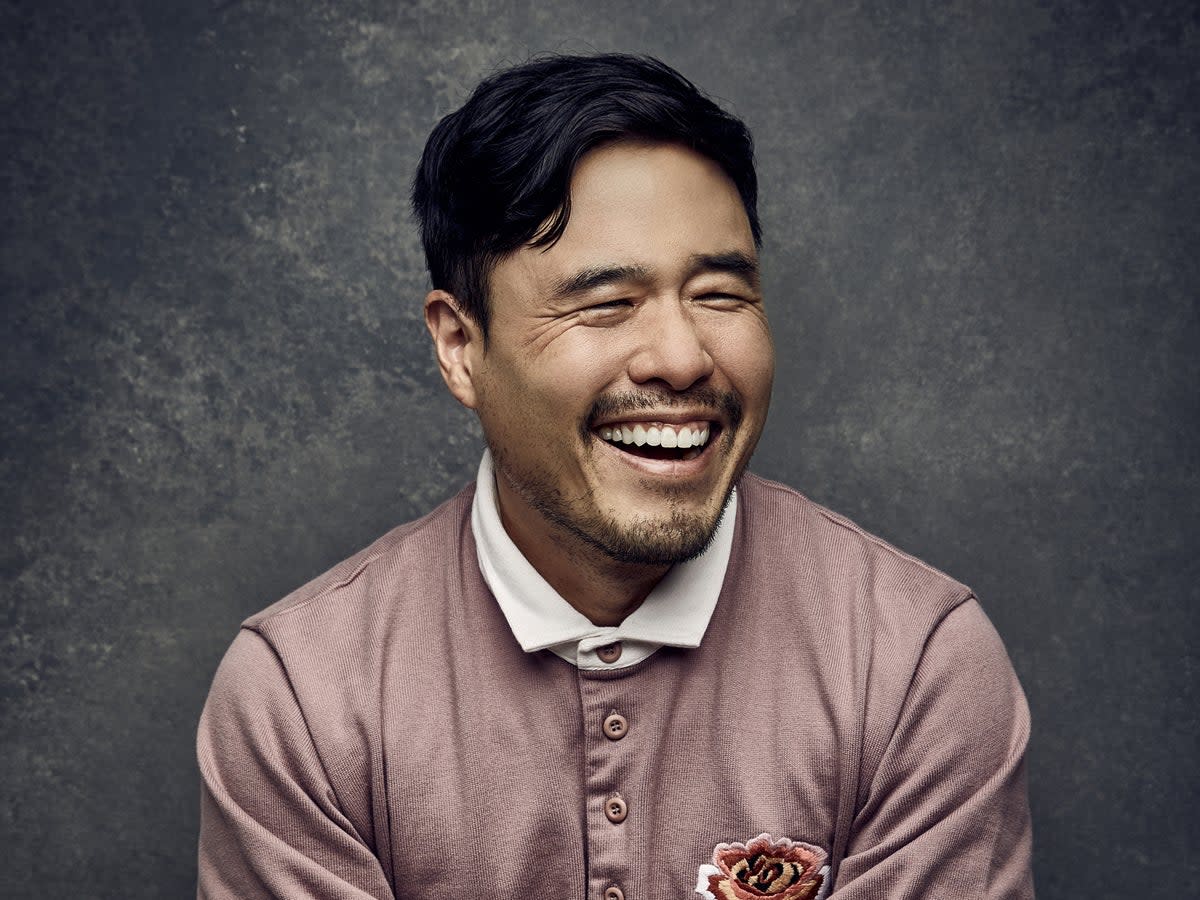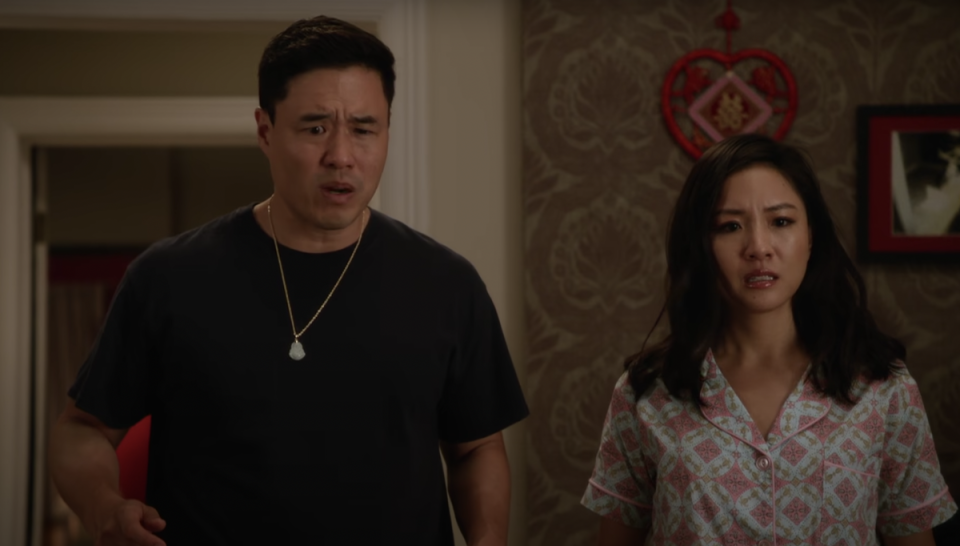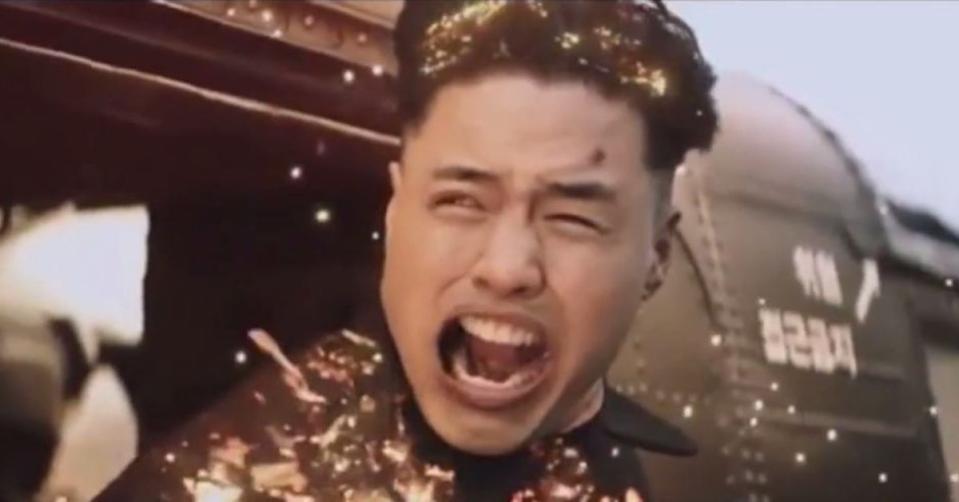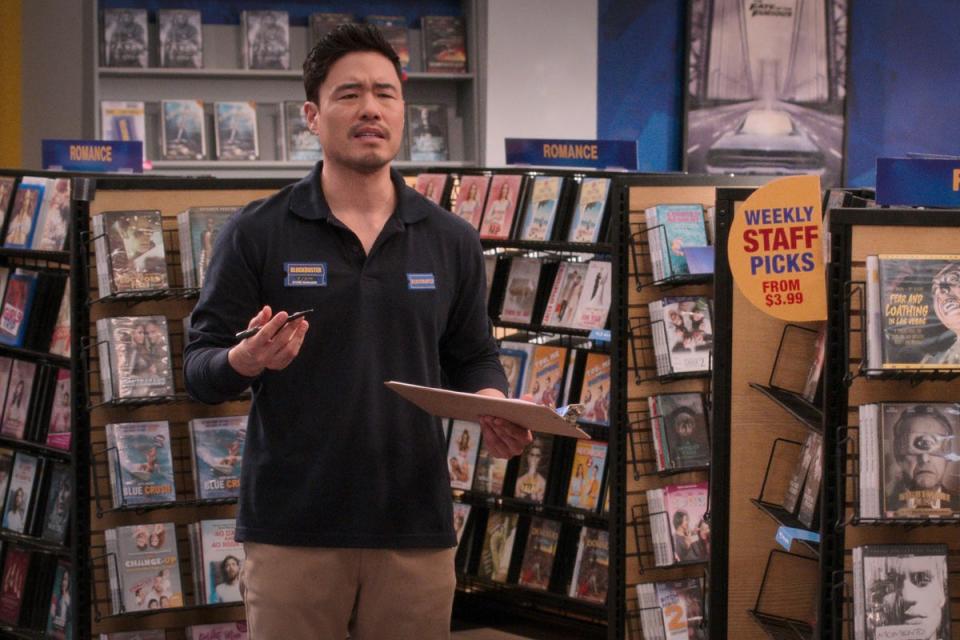‘It was heartbreaking for me:’ Randall Park on how his role as Kim Jong-un nearly sparked a war

On a June day in 2014, unbeknown to most who lived in the enchanted shadow of the Hollywood sign in California, Earth was silently inching towards nuclear war.
One thousand kilometres to the west, a cadre of highly decorated North Korean military leaders had asked themselves perhaps the only question that matters to a dictator’s lackeys: how far are we willing to go?
And in a Los Angeles boardroom, a group of baffled Sony Pictures execs now picked at their nail beds, worrying not so hypothetically: is a Seth Rogen movie really how this big, beautiful mess of a world ends?
The Interview, a then unreleased buddy comedy about a fictional Kim Jong-un assassination plot, had just been publicly branded an “act of war” by the government of North Korea. “If the United States administration tacitly approves or supports the release of this film,” the country’s Ministry of Foreign Affairs threatened on state-sponsored television, “we will take a decisive and merciless countermeasure.”
Randall Park, the actor playing the hawkish dictator, decided it was bluster. Kim wouldn’t really develop military policy on the basis of a film from the Pineapple Express guys – would he? Then again, North Korea had recently despatched furious officials to a London salon that was advertising its services with a picture of Kim emblazoned with the words “bad hair day”. Maybe he would.
When he was cast as Kim, Park had been scoring smaller parts in big projects for a while, the US Office, Armando Iannucci’s Veep, and The Mindy Project among them. He felt his career hovering on a precipice – “I needed that one big thing,” he remembers – and really believed The Interview was it. When the studio decided to push back the film’s release, he hoped for the best. The film’s finale – in which Kim plunges to a fiery death – was reportedly edited to be less face-melty and offensive.
Alas, the worst happened anyway. (Well, we’re all still here, so not the very worst.) As the film’s Christmas Day release neared, a North Korean cybercrime group hacked Sony. Violent threats were made against cinemas intending to show the film. Eventually, the studio dropped plans for a theatrical release altogether. The terrorists won.
Rogen would say he felt abandoned by Sony, and even Barack Obama condemned the decision. “That’s not who we are,” the president said at the time. “That’s not what America’s about.”
But it’s likely no one was more upset than Randall Park.
“It was kind of heartbreaking for me,” the 48-year-old tells me, though his voice – with its twangy LA drawl – remains discordantly cheerful. Our conversation about the time his career precipitated an international incident sounds ripped from a hilarious Hollywood satire dripping with LA patois – the kind Iannucci might write.
“Because while The Interview was being edited, it was being tested to audiences. And all I heard from Seth and [director] Evan Goldberg and from other people involved with the film and even the executives at Sony, all I heard was how great I was in the movie,” Park recalls. “And ‘how high you were testing’ and ‘how this is going to be a huge deal for you’.”
To be clear, it was still a huge deal. Park remembers seeing his own face on the news “and them talking about the real Kim Jong-un”. It was surreal. It was upsetting. But it was not the heartbreaking end. Eventually, he’d be cast as FBI agent Jimmy Woo in the Marvel Cinematic Universe, a role he’s played in three films (two forthcoming) and the hit series WandaVision. He made the irresistible 2019 romcom Always Be My Maybe with his old friend, the comedian Ali Wong.
Now, Park is the star of the Netflix comedy Blockbuster, a sitcom about the last bedraggled outpost of the former movie-rental behemoth. He’s just directed his first feature film. Hollywood careers, not unlike geopolitics, can be marked by fits and starts. There are moments when the world feels on the verge of combustion but nothing happens, and there are non-events with consequences understood only in retrospect.

While “all hell broke loose” over the Sony hack, for example, Park was filming Fresh Off the Boat, the first Asian American-led network sitcom in two decades. The series follows a family of Taiwanese immigrants who trade life in Washington DC’s Chinatown for the chance to run a cowboy-themed chophouse in Orlando. Park – who played the Huang family’s Americanophile patriarch to Constance Wu’s overbearing mother – didn’t think Fresh Off the Boat would run past season one. “I wouldn’t say it was as big as I had thought The Interview was going to be,” Park says, “but it was definitely this cultural moment.
“One of the things it did was prove to the industry that people, and not just Asian Americans but all people across all different communities, will watch an Asian family on screen,” Park says of the warm-hearted series that would earn him two Critics’ Choice Awards nominations and eventually run six seasons. “It did that.”
It also meant something to Park, who grew up in west Los Angeles, the son of Korean immigrants. After high school, he’d pursued a creative writing degree from UCLA, which he followed up with a master’s in Asian American studies. “In my mind, the Asian American studies thing was a part of my inspiration to pursue this career,” Park tells me, chagrined by his own naivety. “I was like, ‘Oh, maybe I can make a difference as an actor.’
“But then I found out that I had very little power in making any difference,” he says, joking but also not. Fresh Off the Boat was the “full circle moment” in a late-blooming career that had felt cobbled together since graduation.
Park started acting in undergrad, when he and his friends co-founded LCC, an Asian American campus theatre group that still exists today. Their first performance was a full-length play he’d written – one with so many small roles to fill that Park, who’s shy by nature, felt obliged to help out.

“That was my first time on stage. And it felt very freeing for me, I think, because I was so introverted that to force myself to go up there and to say these lines that I had written…” Park trails off, not like he’s lost the thread, just eager to tell me even more about the headrush of it. “It was a very magical thing. I think if the audience wasn’t into it, then I probably wouldn’t be acting right now. I wouldn’t be even talking to you.”
So acting became a regular part of Park’s life, though relegated to the role of hobby or side hustle. After graduation, the group kept writing comedies and renting theatres by night, then heading to their day jobs in the morning. Park was happy with the balance, though he didn’t really have what you might call a “main hustle”. He waited tables, he did some graphic design. For a while, he stopped paying his student loans until the Feds found him at a filing job and started deducting wages. His parents didn’t approve of showbiz, but so long as it was only a hobby, Park felt justified in not telling them about it.
In fact, while he starred on Nick Cannon’s Nickelodeon improv show Wild ’n Out in 2005, he still worked at Starbucks. “Why are you here?” Park mimics, playing the role of customers who recognised him from TV. “You should be a millionaire!” Instead, he was 32 and spending most of his paycheque to pay back the bank. He had good luck landing roles in commercials, including for Verizon and a long-running advert for K-Y Jelly, a personal lubricant brand. He’d book a few and quit his side job du jour. “And then when things got cold, I’d have to take a new part-time job,” he adds. “And that definitely happened.”
Park’s 2012 Veep role wasn’t his “big thing” but it was a “turning point” for the actor. It had been almost a decade since his first guest spot on a TV series but finally, the industry started taking notice. “I think it was during that where I was like, ‘Oh, I think I’m going to be OK.’” In 2013, he landed The Interview and Fresh Off the Boat, two projects with little in common except that Park’s parents, who by this point had cottoned on to the fact their son was a Hollywood actor, loved them both.
Park wasn’t upset when Fresh Off the Boat was cancelled, he tells me. He loved the show, but he was excited to pursue other things. The most successful has been the Netflix romcom Always Be My Maybe, which Park co-wrote with Ali Wong, who was actually a member of the theatre group Park founded at UCLA just a few years after he’d graduated. The film, about childhood sweethearts who run into each other after 15 years of not speaking, made a splash, in part because of a memorably bonkers cameo from Keanu Reeves.

Park’s most recent project is Blockbuster, a workplace sitcom with so much nostalgia value that Netflix – one of the streamers that turned video rental stores into historical artefacts – was willing to ignore the irony. Park plays Timmy, the man tasked with keeping the last Blockbuster on earth solvent. Park and I must be the show’s target audience because we immediately walk each other through the video rental places of our youths. How the new releases they shelved on the walls were more expensive than the aisles. “How sometimes you would go and it would be the actual movie cover in front and then the rental copy behind it – and sometimes there would be none,” Park adds ruefully. It’s a simple show about simpler times.
The feelgood series is completely synonymous with Park’s standout work on Fresh Off the Boat and Always Be My Maybe. Actually, when you look at Park’s long list of credits, it’s The Interview that strikes me as out of place. If he was mega-famous for playing face-melty Kim Jong-un, would America have embraced Park as a Shania Twain-crooning carpool dad? If he’d become Hollywood’s go-to Asian for the crude and outlandish comedies guys like Rogen and Judd Apatow have basically already stopped pumping out, would he be creating the work he loves now?
Making Always Be My Maybe reminded Park of what it was like to make plays with his friends in undergrad. “We wrote our own material, we performed it. If we wanted to write music, we’d write music for it.” (The hilarious “I Punched Keanu Reeves”, written and rapped by Park, has two million listens on Spotify.) He’s just directed Shortcomings, a film based on Adrian Tomine’s 2007 graphic novel about race and relationships with a young Asian American man at its centre.
“I feel this magical kind of thing where I’m like, ‘Oh my God, I’m living,’” he says of his career in this exact moment, eight years after he was right to fear he’d be best remembered as the actor who brought the world to the brink of nuclear armageddon. “I feel so fulfilled and so purposeful, and I feel like I’m using all my strengths and learning so much.”
‘Blockbuster’ is available now on Netflix

 Yahoo Movies
Yahoo Movies 
